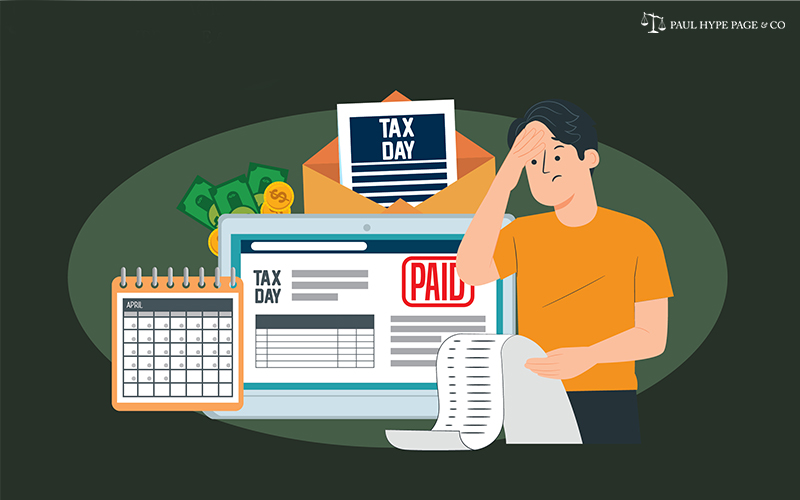Outline
- What is Corporate Income Tax?
- Why do I need to File Income Tax and What are the Income Tax Filing Forms?
- What is Form C?
- What is Form C-S?
- What is Form C-S (Lite)?
- What’s the Difference Between Form C, Form C-S, and Form C-S (Lite)?
- How to File Singapore Corporate Income Tax?
- Tax Filing Deadlines and Penalties
- Tax Reliefs and Incentives
- Conclusion
- Build the Business of Your Dreams
- FAQs
Singapore’s corporate income tax system is one of simplicity and business friendliness. All businesses, whether big or small, have to file income tax returns annually with the Inland Revenue Authority of Singapore. The current tax rate is a flat 17%, with many exclusions and reliefs available to lower taxable income. Filing deadlines are normally set in November for e-filing and September for traditional filing. Accurate and timely filing is very important to avoid fines and keep good status with the tax authorities, which means understanding the filing procedure is of paramount importance.
What is Corporate Income Tax?
Corporate income tax is usually imposed on profits generated by a business operating in a certain jurisdiction. It is controlled in Singapore by the IRAS, at a corporate tax rate of 17% levied on chargeable income. Chargeable income refers to an organization’s income derived after deducting allowable deductions, tax exemptions, and reliefs.
In most jurisdictions, corporate income tax is imposed on companies’ profits derived from an operative jurisdiction. It is governed by IRAS, and the rate charged within Singapore is 17% of the chargeable revenues. Chargeable income is income that a business derives after deducting permissible deductions, tax exemptions, and relief.
For many nations, corporate income tax applies for such earnings received from an active jurisdiction. Under IRAS governance and governed by the Act, in Singapore, it charges a rate of 17 percent chargeable income. The chargeable income is the profit made or derived by the firm utilizing deducting allowable deduction tax-exempted items and the relief.
Why do I need to File Income Tax and What are the Income Tax Filing Forms?
Filing the income tax return of your company is not just about fulfilling an obligation; it reflects compliance and is crucial for businesses to be recognized as reputed ones in Singapore. By filing proper tax returns, the business fulfills its statutory obligation towards IRAS, together with avoiding severe penalties and/or legal consequences.
The essence of timely filing places your company in good books with regulating authorities. This is very important for gaining stakeholder confidence, such as that of investors, clients, and partners. The added advantage is that this opens doors to tax exemptions and refunds that can drastically bring down your overall liability of taxes. Also, such proper filing allows for checking the financial health of the company, identifying areas to be improved upon, and enhancing openness within the financial reporting system.
In a competitive business climate, compliance and financial responsibility will set your organization apart and help it win the trust of stakeholders. Filing your corporation tax return is more than just following the law—it’s a strategic step toward long-term growth and success.
What is Form C?
Form C is for companies with complex tax profiles, such as those whose annual revenue exceeds S$5 million, or which need to make amendments to their financial information. This form calls for detailed submissions, including audited financial statements and a tax computation worksheet with other supporting documents. Companies that have foreign revenues, multiple revenue streams, or special tax concerns will normally file the forms C. It may be a long-form, but companies ensure that their financial situation is well accounted for and accurately represented for tax purposes.
What is Form C-S?
Form C-S is a simplified form of the return designed for small and medium enterprises with straightforward tax affairs. The form may be filed by companies that are incorporated in Singapore, whose turnover is less than S$5 million, and that derive income taxed at the prevailing corporate rate. One of the main advantages of using Form C-S is the simplification of the filing process, as only basic financial information needs to be submitted without comprehensive supporting documentation. This makes it very attractive to SMEs who want to reduce time yet still keep to the standards of IRAS.
What is Form C-S (Lite)?
Form C-S (Lite) is the smallest corporate tax form available, designed specifically for small enterprises with low filing requirements. Corporations eligible for Form C-S (Lite) meet all the requirements of Form C-S, though the process of filing has been much simplified. Indeed, this form significantly lessens the need for an advanced level of tax computations and only requires basic finance information. It is very straightforward to roll over to Form C-S (Lite) for those companies that meet the qualifying criteria, and saving time and effort is most attractive.
What’s the Difference Between Form C, Form C-S, and Form C-S (Lite)?
Singapore has three principal corporation tax forms: Form C, Form C-S, and Form C-S (Lite), catering to the varying needs of a company. Form C is the most comprehensive since it requires full financial statements along with all supporting papers attached and would thus suit large companies that have somewhat complex tax issues. Form C-S simplifies the process for SMEs by requiring less information, provided they meet qualifying criteria such as a revenue threshold of S$5 million. The lightest is Form C-S (Lite), targeting businesses with even more straightforward tax matters. The right form may save time and effort while ensuring compliance.
| Form | Description | Eligibility Requirements | Key Features |
|---|---|---|---|
| Form C | The most detailed tax form requires comprehensive financial statements and supporting documents. Suitable for companies with complex tax situations. |
|
|
| Form C-S | A simplified tax form designed for small and medium enterprises (SMEs) with straightforward tax matters. |
|
|
| Form C-S (Lite) | The simplest tax form is aimed at companies with very straightforward tax situations and minimal filing requirements. |
|
|
Selecting the correct form—Form C, Form C-S, or Form C-S (Lite) – can save your business time and effort. Ensure your company meets the eligibility criteria to streamline compliance and make the filing process as efficient as possible.
How to File Singapore Corporate Income Tax?
Filing corporate taxes in Singapore is a straightforward process, especially when using IRAS’s myTax Portal. Follow these step-by-step instructions to ensure compliance and accuracy:
Tax Filing Deadlines and Penalties
Timely filing of taxes is very crucial to avoid penalties. The e-filing deadline is usually November 30, while paper filing is due by September 30. Late files attract penalties starting at S$200 and increasing with each subsequent delay. Companies should also ensure that their submissions are accurate, as errors may invite further penalties or audits. Finding the errors and notifying IRAS as soon as possible may help mitigate possible consequences.
Tax Reliefs and Incentives
The various tax reliefs and incentives help businesses, including the Start-up Tax Exemption Scheme, Partial Tax Exemption, and Corporate Income Tax Rebate provided in Singapore. These schemes help bring down the overall taxes for businesses to re-invest in their growth. For them to be able to take advantage of these benefits when filing their returns accurately during the filing process, there is a need to specifically verify one’s qualification status. It shows good tax management.
Conclusion
Understanding the subtleties of Form C, Form C-S, and Form C-S (Lite) is very important for effective company tax filing in Singapore. The choice of the right form based on your company’s characteristics makes the process easier and ensures compliance. With deadlines and fines in mind, businesses should emphasize correct and timely filings. Seeking expert help when necessary may give further confidence and assistance, making tax compliance a simple aspect of your business operations.

FAQs
Yes, dormant companies must file an annual return unless they have received a waiver from IRAS. Filing ensures that IRAS has updated records of your company’s status and prevents future compliance issues.
Yes, even if your company incurred a loss, filing a tax return is mandatory. Declaring the loss ensures it is recorded by IRAS, allowing you to carry it forward or use it for tax relief in profitable years, subject to certain conditions.
Absolutely. If your company meets the eligibility criteria for Form C-S or C-S (Lite) in subsequent years, you can switch forms. It’s crucial to review your company’s revenue and tax matters annually to determine the appropriate form.
Missing the deadline may result in penalties, but you can contact IRAS to explain your situation. Extensions are granted on a case-by-case basis and typically only for valid reasons, such as unforeseen circumstances or emergencies.
Paul Hype Page offers expert assistance with corporate tax filing, ensuring your company remains compliant with IRAS regulations while maximizing tax benefits. Our team provides personalized guidance to determine the right tax form for your business, handles the submission process efficiently, and advises on available tax reliefs and incentives. Whether your company is a start-up, SME, or foreign-owned entity, we simplify the complexities of tax compliance, allowing you to focus on growing your business. Reach out to us today for stress-free corporate tax filing!
About The Author
Share This Story, Choose Your Platform!
Related Business Articles




